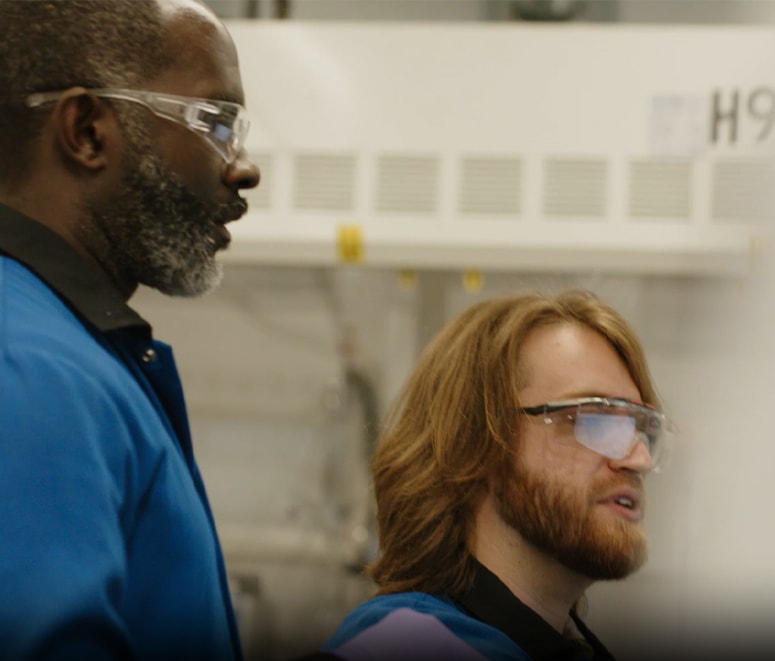Rechargeable battery technology is often considered integral to overcoming the world’s reliance on fossil fuels for transport and power generation. With the potential to power electric vehicles and enable grid-scale energy storage, rechargeable batteries are thought to offer a more environmentally friendly path to support modern-day living. Specifically, their application reduces carbon dioxide emissions and the levels of airborne pollutants during their operational lifetime.
Advanced materials and battery analysis instrumentation from Agilent support researchers and scientists who seek to improve battery performance and extend battery lifetime. Our equipment also helps battery manufacturers ensure safe, stable, and cost-effective operation as well as environmental sustainability. Watch the video on the left to see how Mitra Chem is revolutionizing the electric vehicle industry with their trusted partners.
In recognition of great science in advanced materials for alternative energy applications using Agilent atomic and molecular spectroscopy solutions, five global researchers have received the Agilent Solutions Innovation Research Award within two categories: the 2023 Advanced Material Research Award, and the 2023 Advanced Material Research Award Using Molecular Spectroscopy.
Agilent Solutions Innovation Research Awards
2023 Advanced Material Research Award recipients:
- Professor Michel Barsoum, distinguished professor at Drexel
- Professor Yury Gogotsi, distinguished professor at Drexel University
- Professor Ananda Amarasekara, Prairie View A&M University
2023 Advanced Material Research Award Using Molecular Spectroscopy recipients:
- Professor Richard Robinson, associate professor at Cornell University
- Professor Xingchen Ye, associate professor at Indiana University
 From left to right: Professor Michel Barsoum, Professor Yury Gogotsi, Professor Ananda Amarasekara, Professor Richard Robinson, Professor Xingchen Ye
From left to right: Professor Michel Barsoum, Professor Yury Gogotsi, Professor Ananda Amarasekara, Professor Richard Robinson, Professor Xingchen Ye
“By investing in the development of cutting-edge materials and battery technologies, we can address pressing global challenges, reduce environmental impact, and create a greener, more resilient future for generations to come.”
- Nahid Chalyavi, PhD, associate vice president of University Relations, Agilent
